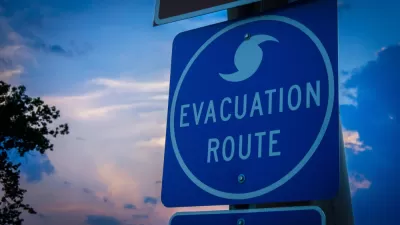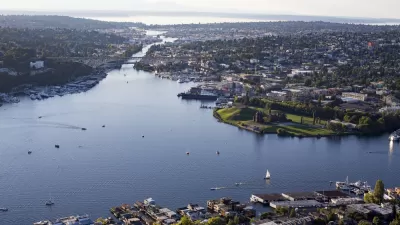In GeekWire, Chuck Wolfe covers an atypical urban planning and policy gathering called an “Urban Resilience Hackathon,” which was held at the University of Washington in Seattle late last month. For a day, the event showcased collaborative problem solving and innovative thinking in addressing urban challenges.

Writing for GeekWire—and as a hackathon participant—Chuck Wolfe explains how the hackathon brought together volunteer organizations, state and local government, students, and researchers to co-develop testable “resilience pilot projects” that could help Seattle be more prepared for future disruptions.
DemocracyLab, a “tech for good” nonprofit, helped facilitate the hackathon, which had support from the National Science Foundation LEAP-HI project, and the UW’s Department of Urban Design and Planning.
The UW hackathon centered on various pitches each addressing a different aspect of urban resilience to be tested against a future earthquake, pandemic, excessive heat event, or massive airline flight grounding. The pitches were also assessed for support of the Seattle Climate Action Plan and Seattle Race and Justice Initiative.
The range of projects presented, from urban system solutions to emergency water storage, speaks to the diverse issues that require further preparation and collaboration.
“Crises don’t allow time to invent responses from scratch,” said Dr. Dan Abramson, one of the event’s organizers from the UW Department of Urban Design and Planning. “Cities need to be adaptable, and the most adaptable cities are those that have a deep reserve of policies and programs they can draw on to keep themselves vital when normal activities are disrupted.”
FULL STORY: Can tech help cities plan for disasters? 7 ideas from an urban resilience hackathon

Planetizen Federal Action Tracker
A weekly monitor of how Trump’s orders and actions are impacting planners and planning in America.

Congressman Proposes Bill to Rename DC Metro “Trump Train”
The Make Autorail Great Again Act would withhold federal funding to the system until the Washington Metropolitan Area Transit Authority (WMATA), rebrands as the Washington Metropolitan Authority for Greater Access (WMAGA).

The Simple Legislative Tool Transforming Vacant Downtowns
In California, Michigan and Georgia, an easy win is bringing dollars — and delight — back to city centers.

The States Losing Rural Delivery Rooms at an Alarming Pace
In some states, as few as 9% of rural hospitals still deliver babies. As a result, rising pre-term births, no adequate pre-term care and "harrowing" close calls are a growing reality.

The Small South Asian Republic Going all in on EVs
Thanks to one simple policy change less than five years ago, 65% of new cars in this Himalayan country are now electric.

DC Backpedals on Bike Lane Protection, Swaps Barriers for Paint
Citing aesthetic concerns, the city is removing the concrete barriers and flexposts that once separated Arizona Avenue cyclists from motor vehicles.
Urban Design for Planners 1: Software Tools
This six-course series explores essential urban design concepts using open source software and equips planners with the tools they need to participate fully in the urban design process.
Planning for Universal Design
Learn the tools for implementing Universal Design in planning regulations.
Smith Gee Studio
City of Charlotte
City of Camden Redevelopment Agency
City of Astoria
Transportation Research & Education Center (TREC) at Portland State University
US High Speed Rail Association
City of Camden Redevelopment Agency
Municipality of Princeton (NJ)





























